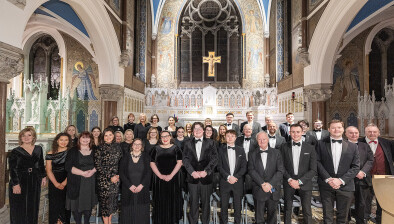NI: Couple awarded £750 compensation against council over restricted caravan access
A couple who complained that the council were in breach of the licence agreement to allow them to use their static caravan in Portstewart have been awarded €750 in compensation in Coleraine County Court.

About this case:
- Judgment:
The couple were denied access for six months despite having paid their licence fee for the full year, and Judge Gilpin rejected the Council’s submission that the Court should imply a term into the licence agreement which would allow the council to restrict access for repairs.
Background
In January 2014, Stephen and Alison Moore entered into a Licence Agreement with Causeway Coast and Glens District Council to allow them to continue to pitch and use their static caravan at the Council’s caravan site at Juniper Hill, Ballyreagh Road, Portstewart for the year 1 April 2014 to 31 March 2015. They then paid the relevant licence fee of £2279.00 to the Council.
In these proceedings Mr and Mrs Moore sought damages of £2500 for an alleged breach of the Licence Agreement when the Council denied them the right to use their caravan at Juniper Hill from 29 September 2014 to 31 March 2015.
The Council accepted that it did deny Mr and Mrs Moore the right to use their caravan for the period in question, but claimed it was entitled to do so in order that it could carry out certain works at Juniper Hill.
The Terms of the Licence Agreement
The Licence Agreement expressly permitted Mr and Mrs Moore to use their caravan for “holiday and recreational purposes”
Mr and Mrs Moore’s claim was that they had paid the Council for the right to use their caravan for a certain number of days during the year, but by denying them their right to use the caravan from 29 September 2014 to 31 March 2015, the Council had unlawfully failed to allow them to use all of the days they had paid for.
Beyond the express terms of the Licence Agreement the Council contended that the court should imply a further term into the agreement between the parties, namely that:
“Access to the site is controlled by the owners and the owners permit reasonable access/use of the caravan site except where access/use has to be interpreted for the purposes of repair, improvement or for other reasons beyond our control.”
Furthermore, the Council contended that nowhere in the agreement did it expressly provide that Mr and Mrs Moore be given access to their caravan – it was only provided for that they could use it.
Thus the Council suggested that for the Licence Agreement to make any practical sense the parties must have already agreed an implied clause as to access – as such if access forms part of the agreement between the parties then so must a right to interrupt that access, and thus the clause they contended for should be implied into the Licence Agreement.
Decision
Judge Gilpin was satisfied that the express agreement they concluded with the Council allowed them to use their caravan every day from 17 March 2014 to 3 November 2014 and at weekends from 4 November 2014 to 16 March 2015, and that this was explicit in Part 1 of the Licence Agreement.
Judge Gilpin was satisfied that in appropriate cases the courts can imply certain terms into an agreement, as per Caryle v Royal Bank of Scotland UKSC 13 which expressly approved of the approach of the majority in the New Zealand Court of Appeal decision in Fletcher Challenge Energy ltd v Electricity Corporation New Zealand Limited where that court held that:
“The Court has an entirely neutral approach when determining whether the parties intended to enter into a contract. Having decided that they had that intention, however the Court’s attitude will change. It will then do its best to give effect to their intention and, if at all possible, to uphold the contract despite any omissions or ambiguities.”
The Court accepted the submission of the Council that in providing that Mr and Mrs Moore could use their caravan the parties had by implication agreed there would be an ancillary right of access across Juniper Hill to allow them to get to it.
However, Justice Gilpin rejected “the attempt on behalf of the Council to curb this basic right” of Mr and Mrs Moore to access their caravan by “allowing the Council the right to restrict both access and consequently use where such a restriction is sought in order to effect repairs, improvements or for other reasons beyond the Council’s control”.
In relation to access Justice Gilpin found this to be implicit within the agreement between the parties being ancillary to the express right to use the caravan.
The Council did not enjoy the right to restrict the use of the caravan outside the express provisions of the Licence Agreement, and it followed that they did not have the right to restrict the ancillary right of access.
Finding that Mr and Mrs Moore were entitled to damages, Judge Gilpin determined that an award of £750 was appropriate in the circumstances “to place the innocent party in the position they would have been in if they had not suffered the wrong of which complaint has been made”.
Further, Judge Gilpin was satisfied that Mr and Mrs Moore should be entitled to costs “in the usual way for cases brought in the County Court and not suffer what Valentine terms ‘the costs penalty’ for not having brought them by way of a small claim”.







